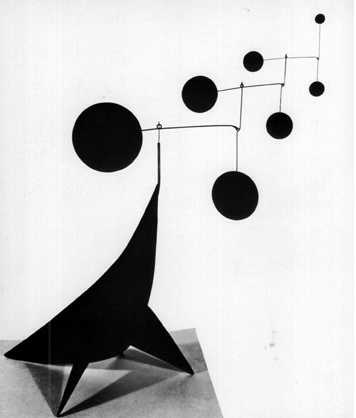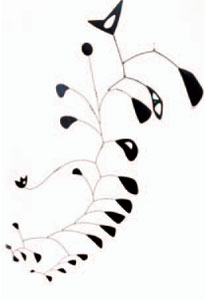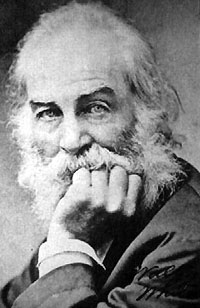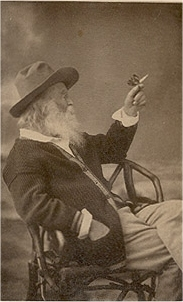LITR 5731 Seminar in American
Multicultural Literature
Minority Literature

Lecture Notes
instructor's week: flying tomorrow to NC for Mother's 92nd birthday, return Saturday
final exam & course review
impossible to guess class chemistry, but students often show up ready & eager to study minority subjects
subjects matter, have meaning, but public discourse is stunted, repressed or inflammatory
identity politics--everyone tends to just take turns (and everyone has lots of identity elements, which also take turns: ethnicity, gender, class, religion, disabilities, etc.)
sense of zero-sum game, where if one side wins, other sides lose
seminar designed to counter-act such limits
create common ground or language of texts and objectives
objectives can be annoying but eventually become familiar
best seminar ever for working together in discussion; no one talked too long or exclusively, no long life stories
instead, professional atmosphere of learners listening and cooperating
some coaching, pardon clumsiness
always some issues in any group, but plenty of individuality, and opportunities to express
strong readings of texts
sense that you're all part of the solution that is working itself out
impressed with how you looked to each other for answers and not to me for validation
trusted me not to go on about any old thing
discussion: limit self to 1 sentence, or wait until I can say it in one sentence
can't be right about everything
unfinished stories
but can keep learning to read, listen, speak, and write
![]()
objective 2a. Is the status of women, lesbians, and homosexuals analogous to that of ethnic minorities in terms of voice and choice? Do "women of color" become "double minorities?"
Attitude toward homosexuality as subject? opportunity to learn about a subject that eludes normal categories
premise: while homosexuality may be an everyday reality for some fraction of any population, for most it will be something "other"
as "other," homosexuality is usually denied choice and voice
alternative strategy: regard homosexuality as "mystery" or something both definitely there and just as elusive
rationale:
homosexuality is repressed in so many ways, that it will express itself in many different ways
avoid reductive thinking, even if sympathetic
compare American Indian as "noble savage" or "bloodthirsty savage"
compare Mexican American as neither immigrant nor minority
minority as ethnic > minority as gender
Objective 1
To define the “minority concept" as a power relationship modeled by some ethnic groups’ historical relation to the dominant American culture.
1a.
“Involuntary (or
forced) participation”
(Unlike the dominant immigrant culture, ethnic minorities did not choose to come to America or join its dominant culture. Thus the original "social contract" of Native Americans and African Americans contrasts with that of European Americans, Asian Americans, or most Latin Americans, and the consequences of "choice" or "no choice" echo down the generations.)
1b.
“Voiceless
and choiceless”
(Contrast the dominant culture’s self-determination or choice through self-expression or voice, as in "The Declaration of Independence.")
1c.
To observe
alternative
identities and literary strategies developed by minority cultures and
writers to gain voice and choice:
· “double language” (same words, different meanings to different audiences)
· using the dominant culture’s words against them
· conscience to dominant culture (which otherwise forgets the past).
Objective 2
To observe representations and narratives (images and stories) of ethnicity and gender as a means of defining minority categories.
2a. Is the status of women, lesbians, and homosexuals analogous to that of ethnic minorities in terms of voice and choice? Do "women of color" become "double minorities?"
convergence of gay identity & artistic / intellectual identity?
What reasons?
no single answer, but several variables . . .
higher tolerance in literary / artistic circles +- professional world
meritocracy vs. moralism
cf. "gays in the military" arguments
artists-intellectuals as outsiders, numerical minority
gays as automatic outsiders, numerical minority
compare to issues of priests as gays
If love is prohibited, then love is refocused
127 x-choose being female, painter
127 love something instead of someone
Alexander Calder, 1898-1976
famous for "mobiles"
|
|
|
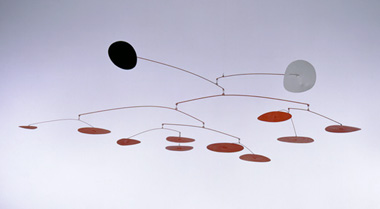
Paul Monette, Becoming a Man: Half a Life Story. SF: HarperSanFrancisco, 1992.
chapter 3, pp. 86-7
[Monette recalls prep school at Andover (he was a hometown scholarship boy) and working at the Academy's Addison Gallery of American Art.]
It was there among the moderns that I witnessed a pair of Dionysus boys horsing around . . . as they made their grudging notes for a paper. Suddenly one of them blocked the other with his shoulder, sending him staggering backward. A flailing arm knocked against a Calder, a swirling knot of black steel rods with teetering mobile wings and fingers. The whole of which fell crashing off its pedestal--setting off no alarm, but the noise brought curator and staff scurrying. The guilty philistines had already vanished.
I watched the staff pick up the sculpture tenderly, cradling it like a big wounded bird, all the while fretting in anguish that it might have sustained some damage. Of course it was fine--that tempered steel could have survived a bomb blast. But I was enthralled by the urgency of their reaction, as if the Calder were a kind of holy object for them. I would be spending a lot of time in museums in the years ahead, consoling myself by means of connoisseurship for the bitter solitude of my life. The lesson of that tenderness, the Calder being restored to its pedestal, stayed with me as I took solace in beautiful things. At least I could feel for art what the laws of desire and my own self-hatred prevent me from feeling for another man. . . .
![]()
Whitman, "Wound-Dresser"
|
|
|
Whitman's life-span: 1819-1892
born to working-class, somewhat radical family on Long Island
minimal formal education, but ongoing self-education
(similar figures in period: Frederick Douglass 1818-95, Abraham Lincoln 1809-65)
Whitman drifted into New York City, journalistic career, editor of daily newspapers
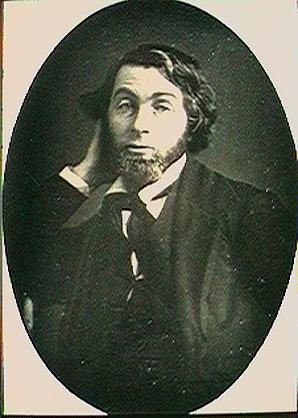
breakthrough event in poetic career (though not recognized at time):
self-publication of Leaves of Grass 1855
revolution in poetry:
style: Whitman first major poet to develop free verse
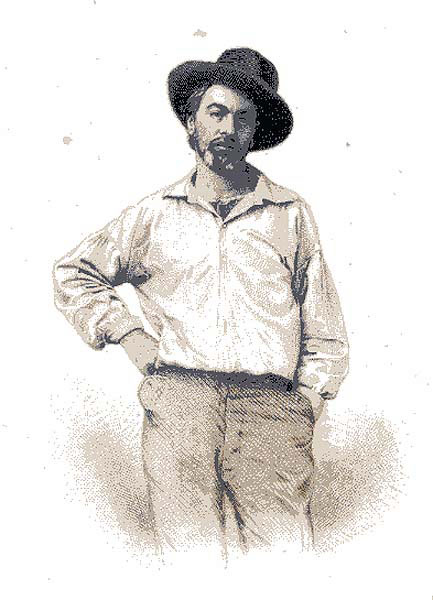
Whitman's portrait in 1855 Leaves of Grass
More about Leaves of Grass as revolutionary book . . .
content: Whitman includes many subjects in poetry that had formerly been off-limits: race, sexuality, self-confession, lusts, shame, degradation, exaltation
Whitman glorified as greatest American poet for giving voice to many different identities, inclusiveness, individualism, common qualities
Except for a few adventurous American readers-writers like Emerson, Thoreau, and Fanny Fern, Whitman's early work was mostly scorned or ignored
Over time, Whitman probably the single most influential American poet--not just on other American poets but on world poetry
During lifetime, appreciated more in Europe than USA
continued to write journalism and poetry
other editions of Leaves of Grass
individual books of poems that were later incorporated into Leaves of Grass
1860 Calamus poems on homosexual love (last week's "In Paths Untrodden") + Children of Adam poems on heterosexual love
In public statements, Whitman denied homosexual content or lifestyle, boasted of heterosexual adventures
Whitman as part of New York Bohemian underworld centered around Pfaff's tavern
undergrad paper on Whitman > Pfaff's
previous models of urban enclaves: classical Athens? Rome? Court of King James I in England (1600s)?
Whitman maintained two sets of acquaintances:
literary world
cab drivers
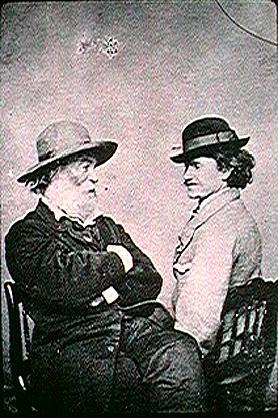
Whitman and Peter Doyle
1862 Whitman's brother George wounded in Civil War battle; Whitman journeys to Washington, takes secretarial job in Department of War, serves as visitor or practical nurse to sick and wounded through the Civil War and beyond
May be recognized as most sustained and committed humanitarian effort by a major writer
1865 Drum Taps, book of poems on Civil War, some of them emphasizing fraternity or comradeship of soldiers, grief over parting, death
> "The Wound-Dresser"
1865 "When Lilacs Last in the Dooryard Bloom'd"
1871 "Passage to India" (poem read last semester in Colonial-Postcolonial Literature > title for E. M. Forster's novel A Passage to India)
1873 stroke largely disabled Whitman, moved to Camden NJ near Philadelphia, continued to write, traveled occasionally, increasingly surrounded and supported by supporters or disciples
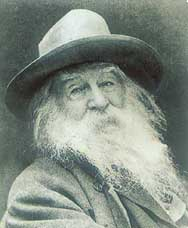
Discussion-starter (2006): Giselle Hewitt
 by
by
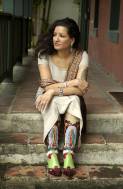
Mexican American “Ambivalent” Dream (Objective 3: compare and contrast “American Dream”)
Sometimes the Mexican American dream resembles the dominant culture’s “American Dream”, and sometimes it is an altered version focusing on a struggle. The “American Dream” model can be seen in the “Little Miracles, Kept Promises” chapter, where individuals are leaving notes on the retablo: “I would like for you to help me get a job with good pay, benefits, and retirement plan.” (118) “Let my Illinois lottery ticket win…” (119)
The altered version or “the dream” models are similar in their want for wealth and success, but are distinguishable by their labor “class” or through their struggle with power. (Objective 2b: Race may replace class divisions of power, labor, or “place”)
“Virgencita de Guadalupe, I promise to walk to your shrine on my knees…if you will only get the Tortilleria la Casa de la Masa to pay me the $253.72 they owe me for two weeks’ work…[they] all depend on what I send home…Please, Virgencita…There is no one else I can turn to here in this country…” (120)
“Flavio’s family was so poor, the best they hoped for their son was a job where he would keep his hands clean. How were they to know destiny would lead Flavio north to Corpus Christi as a dishwasher at a Luby’s…Field work, he’d done that too…you gotta work fast to make any money…So when Flavio’s Uncle Roland asked him to…help him out with his exterminating business…[where he could] learn a trade, a skill for life… at least that was better than…having to keep your hands all day in soapy water like a woman.” (147)
The American born Mexican American dream often includes an attempt to “reconnect to the past” or gain back some of the culture lost in the transition. “This is a powerful time we’re living in. We have to let go of our present way of life and search for our past…returning to one’s roots is returning to one’s destiny.” (149) “I said, ‘What you are, sweetheart, is a product of American imperialism,’ and plucked at the alligator on his shirt. ‘I don’t have to dress in a sarape and sombrero to be Mexican,’ Flavio said. ‘I know who I am.’ I wanted to…fire a pistol at his Reeboks…” (151) “But Eddie and I were products of our American education…When Flavio accidentally hammered his thumb, he never yelled “Ouch!” He said, !Ay! The true test of a native Spanish speaker.” (153)
*Do you think this is a fair division of the Mexican American “dream”? Does it adequately portray an ambivalent identity?
The Alternative Minority: Women and the Homosexual:
The alternative minority often exhibits characteristics of
the minority and are often in a lower “division of power”.
“M3rlc5l45s Bl1ck Chr3st 4f 2sq53p5l1s” “Miraculous Black Christ of Esquipulas, I ask you Lord, with all my heart please watch over Manny Benavides who is overseas. I love him and I don’t know what to do about all this love sadness and shame that fills me. – Benjamin T. Del Rio, TX” (122)
Benjamin is a homosexual man who is “fill[ed]” with so much “sadness and shame” that he has been stripped of his “voice” and has written his prayer in code so that no one knows his secret. As seen in the Eyes of Zapata, women also suffer from a lack of “voice and choice”. The woman often finds herself stuck in between two worlds… her father’s house or her lover’s, her lover or other women’s lover, and submission or assertion of one’s self. (Objective 1b: “Voiceless and Choiceless”)
“Under the little avocado tree behind my father’s house is where you first kissed me…You belong to me now, you said, and I did.” (107) “When my father pleaded, you can’t imagine how I felt…But I said nothing. Well then, my father said, G-d help you. You’ve turned out just like the perra that bore you. Then he turned around and I had no father.” (89) “I spent the days chewing on that poison as I was grinding the corn, pretending to ignore what the other women washing at the river said. That you had several pastimes.” (96)
She lost her father because of the man, and lost the man to other women. A woman who asserts herself is often given a negative connotation meant to give distaste to or put down the women much like Ultima in Bless Me Ultima.
“It’s her fault, the villagers said when they returned…Bruja…They say when I was a child I caused a hailstorm that ruined the new corn…they wanted to burn me with green wood. It was my mother they killed instead…I was sick, sick, for several days, and they say I vomited worms…” (104) “They say I am the one who caused her children to die. From jealousy, from envy…What do you say?…You married her, that woman from Villa de Ayala…” (98) “Mujeriego (womanized). I dislike the word…in the mouth of man, the word is flint-edged and heavy, makes a drum of the body, something to maim and bruise, and sometimes kill.” (105)
The woman, like other minorities, lives for “the Dream” “factor[ing] in setbacks” and “the need to rise again”. “Surviving”, but not necessarily “succeeding”. “I go on surviving, hiding, searching if only for Malenita’s sake.” (103)
Syncretism in Woman Hollering Creek
Religion is one way syncretism is used in Woman Hollering Creek, and shows how the Mexican American achieves living in more than one realm.
“…bless me…santisimo Nino Fidencio…virtuoso John F. Kennedy, and blessed Pope John Paul.” (119) “Church-sanctioned powers on one aisle…folk powers on another…I chose a Yo Puedo Mas Que Tu from the pagan side and a Virgen de Guadalupe from the Christian.” (159)
Syncretism of women’s identity?
Watching the telenovelas – “And in my dreams I’m slapping the heroine to her senses, because I want them to be women who make things happen, not women who things happen to…Passionate and powerful, tender and volatile, brave.” (161)
“Beatriz Solis…a criminal lawyer by day, an Aztec dance instructor by night…” (141)
“San Antonio de Padua, can you do something about all the educated Chicanos who have to go to California to find a job…I would appreciate it very much if you sent me a man who speaks Spanish, who at least can pronounce his name the way it’s supposed to be pronounced…Can you send me a man man…someone who’s not ashamed to be seen cooking or cleaning after himself…I’ve put up with too much too long, and now I’m just too intelligent, too powerful, too beautiful, too sure of who I am finally to deserve anything else.” (117)
These women are asking to be accepted for both their sensual and strong qualities. They want a blended identity of “power” and “beauty”.
*If a minority is defined as a “power relationship
modeled by” a “groups’ historical relation to the dominant American
culture”, then do you think the institutional discrimination women and
homosexuals have suffered from qualifies as a “forced” “social contract”
with the dominant culture?
*Do you think a case can be made through narratives that women and homosexuals are historically “voiceless and choiceless” groups? If so is a type of syncretism or blending of their identity a way of “personal sacrifice” in order to assimilate? Is their minority status similar to Mexican American’s “Ambivalent Minority”?
